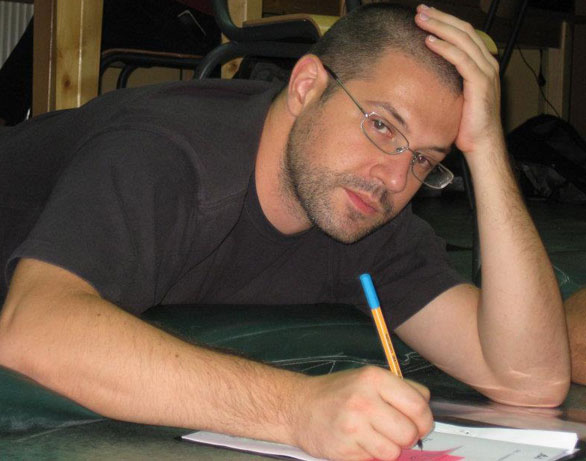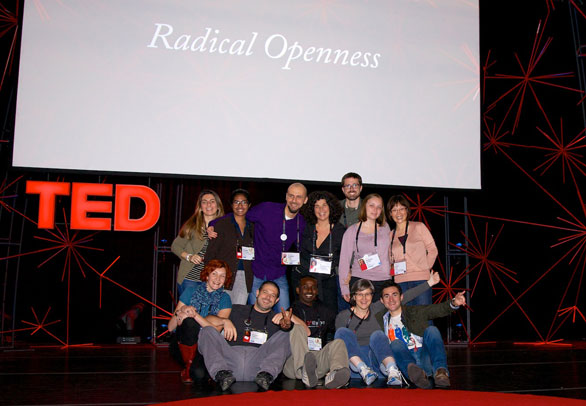 TED Talks are available in 94 languages, from Albanian to Vietnamese, thanks to the tireless work of our translators. So far, more than 8,500 volunteers have created nearly 34,000 translated talks. To celebrate this huge accomplishment, every week the TED Blog will be bringing you a Q&A with one of our most prolific translators. Today, meet Alberto Pagani.
TED Talks are available in 94 languages, from Albanian to Vietnamese, thanks to the tireless work of our translators. So far, more than 8,500 volunteers have created nearly 34,000 translated talks. To celebrate this huge accomplishment, every week the TED Blog will be bringing you a Q&A with one of our most prolific translators. Today, meet Alberto Pagani.
Where do you live? And what do you do by day?
I’m from Bologna, Italy — yes, the place where the ham-like thing comes from. I’m trying to make photography my full-time job, and am sort of a little more than halfway there. I also teach English, translate, volunteer for an NGO, have fun and listen to a lot of music.
What drew you to TED?
Random internet browsing in late 2008 or early 2009, I think. All I can remember is that I was doing some research online and I stumbled on a video from TED.com and, after watching A LOT of videos — one after the other — I realized I was hooked. Then I read about the conferences, the Open Translation Project and the TEDx program. I started translating and have gotten the chance to meet a lot of wonderful and inspiring people. Here we are five years later.
 David Deutsch: A new way to explain explanation
David Deutsch: A new way to explain explanation
What was the first talk you translated and how did you pick it?
The one I stumbled on about five years ago: David Deutsch’s “A new way to explain explanation.” Halfway through watching it, I thought of some friends who would love it as well — but they didn’t speak English. So I actually started writing down the text and translating it on my own. Then I noticed a link on the page referring to translations, I clicked there and discovered the Open Translation Project. I signed up immediately and started translating all the talks I could get my hands on.
What have been your favorite talks to translate? Why?
I like the challenging ones — the ones that make me work hard and learn things in the process. Sometimes the things I learn are related to the topic, but more often they are related to transferring the talks into Italian — the mood, the concepts, the humor and the cultural references that are found in the talks. That being said, there is a special place in my heart for the final bit of the first talk I translated: “Take two stone tablets. On one of them carve ‘Problems are solvable,’ on the other one carve ‘Problems are inevitable.'”
Which talk was the most difficult for you to translate and why?
Jokes are the hardest things to translate, in my opinion, and cultural-specific references are a very close second. We need to find an equivalent in the target language that maintains the tone, the general sense and often the specific meaning of the joke. Trust me on this: from a translator’s point of view, stand-up comedy is much, much harder than rocket science.
What’s a phrase in your language that you wish would catch on globally?
“Let’s talk about this over coffee/lunch/dinner.”
The idea is that to properly address important issues, people require a comfortable and relaxed environment, something a large number of Italians would not find in formal settings like an office or a meeting. I think you could roughly translate that phrase as: “I think the issue is important and I value your opinion, so it will be worthwhile to invest our free time in discussing this where we can both feel comfortable and speak our minds freely.”
Meet more of our TED translators »

Pagani snaps a photo on the TEDGlobal 2012 stage.
Comments (1)
Pingback: Wizmo Blog » Blog Archive » Meet the Translator: Alberto Pagani, who brings you TED Talks in Italian